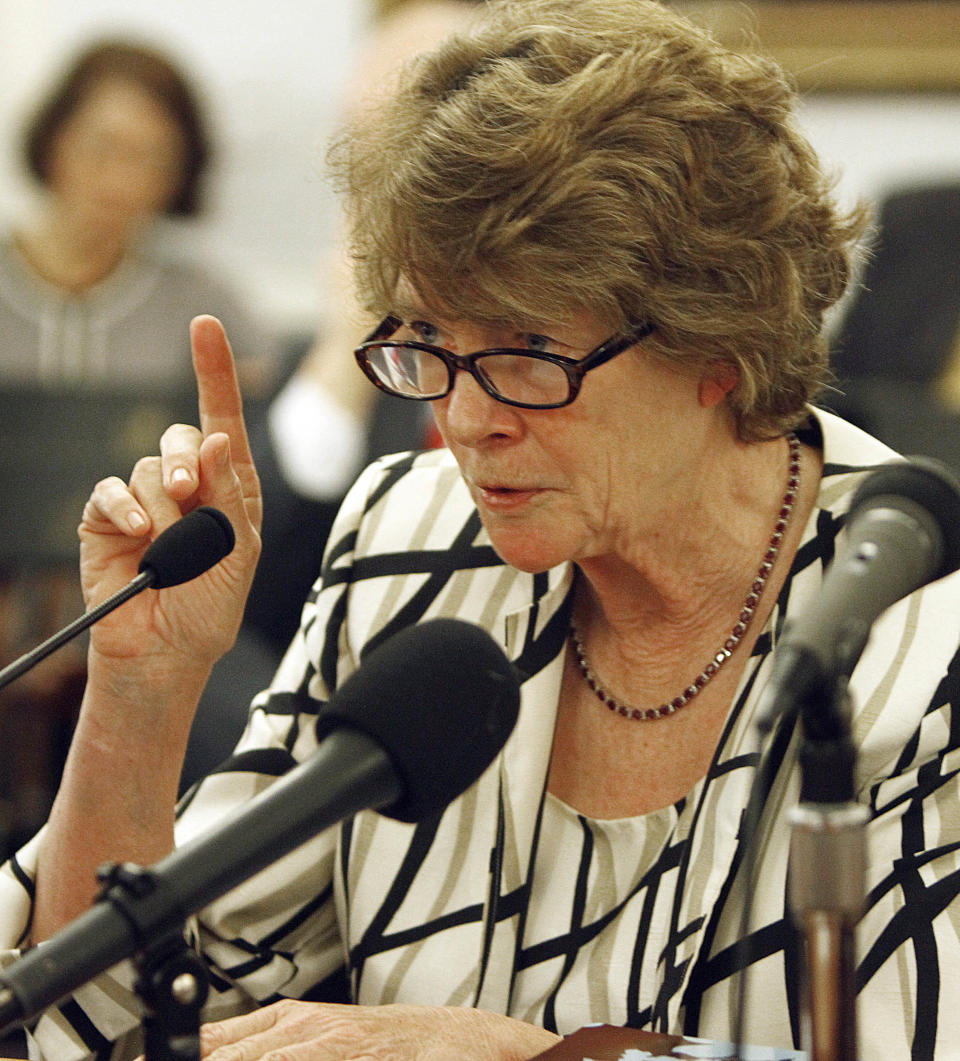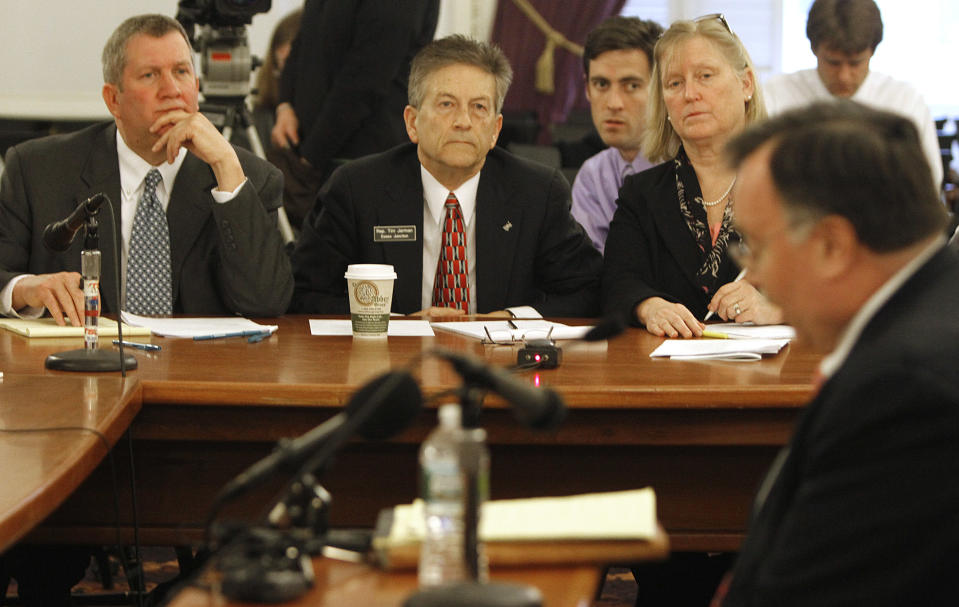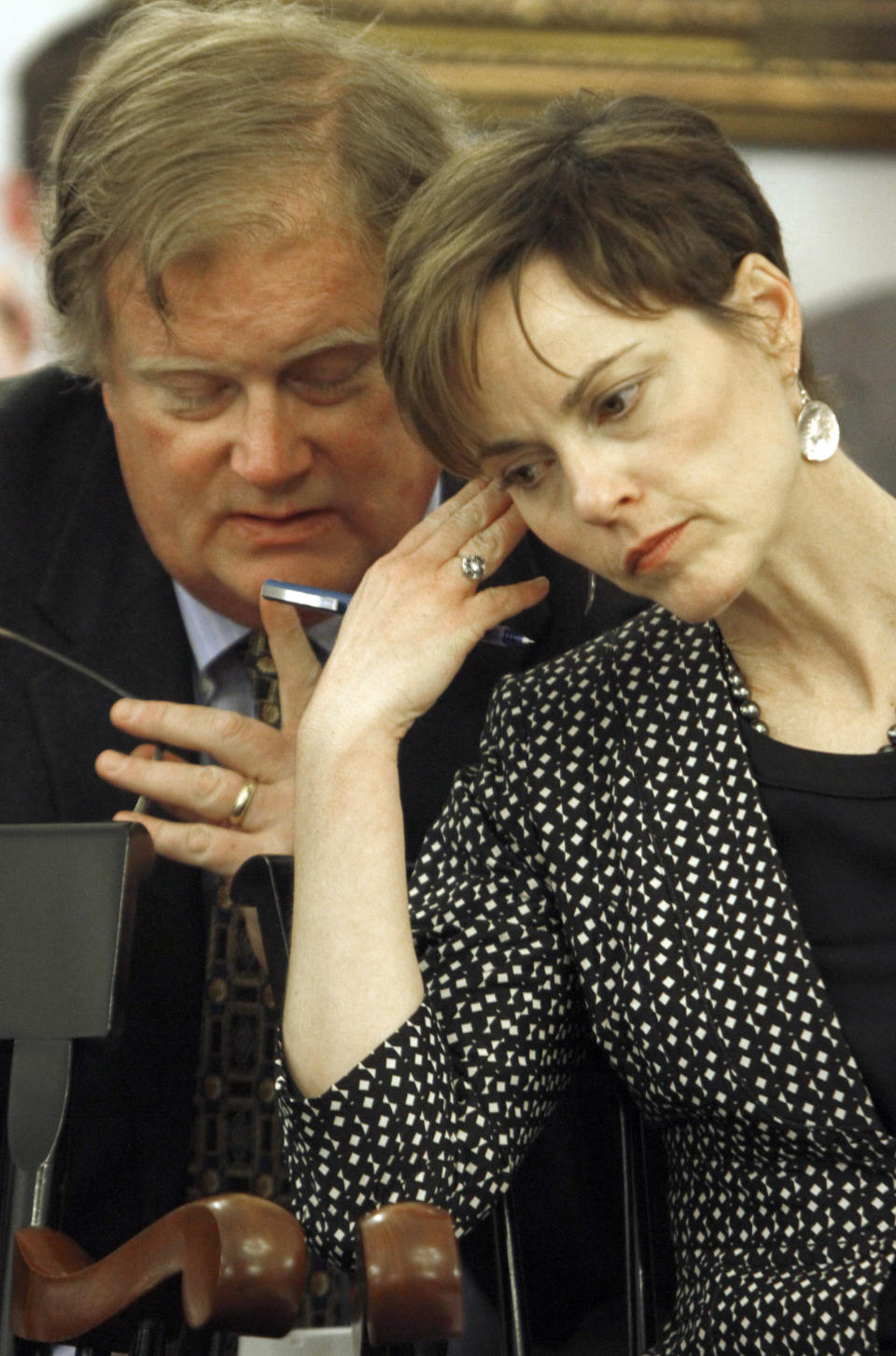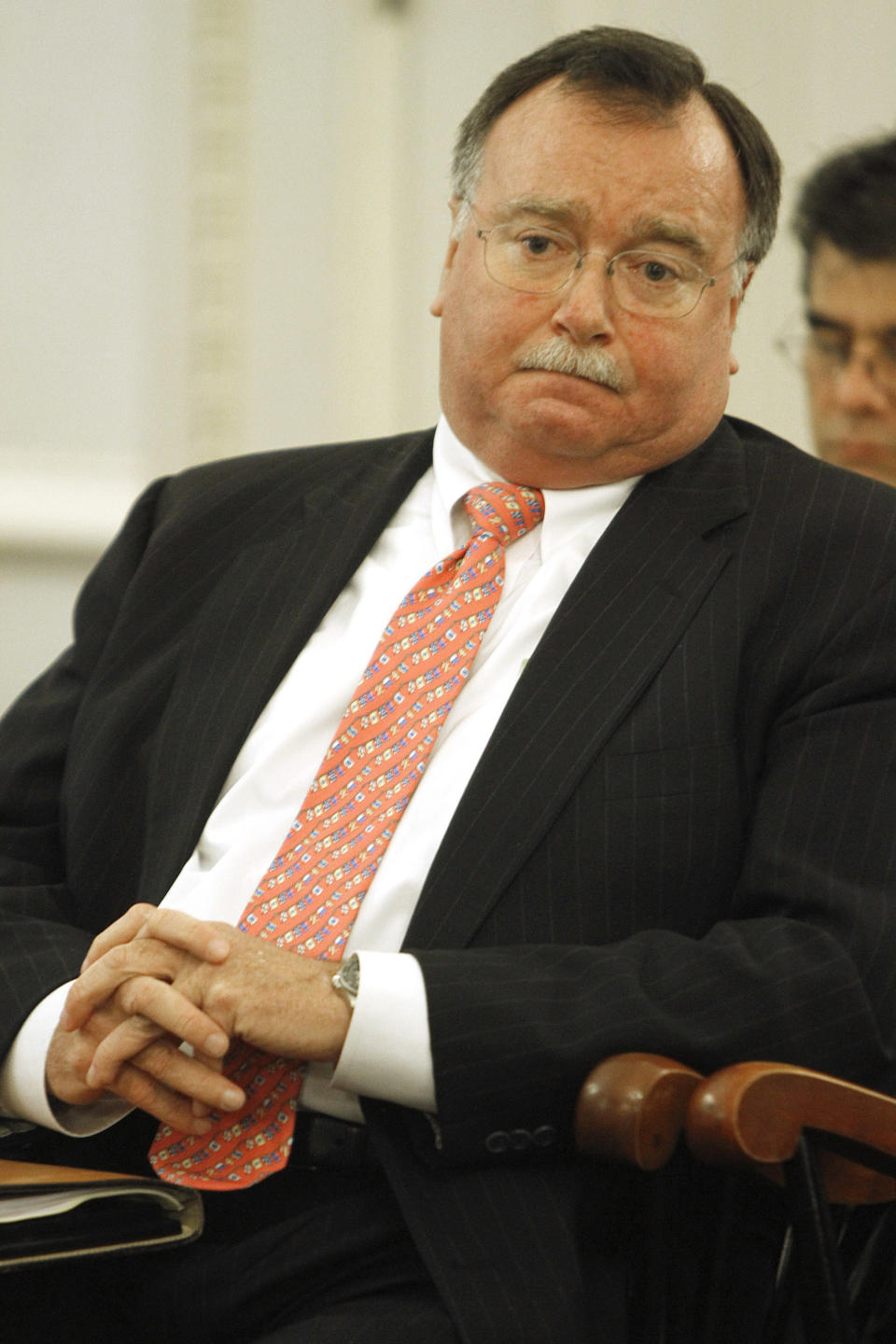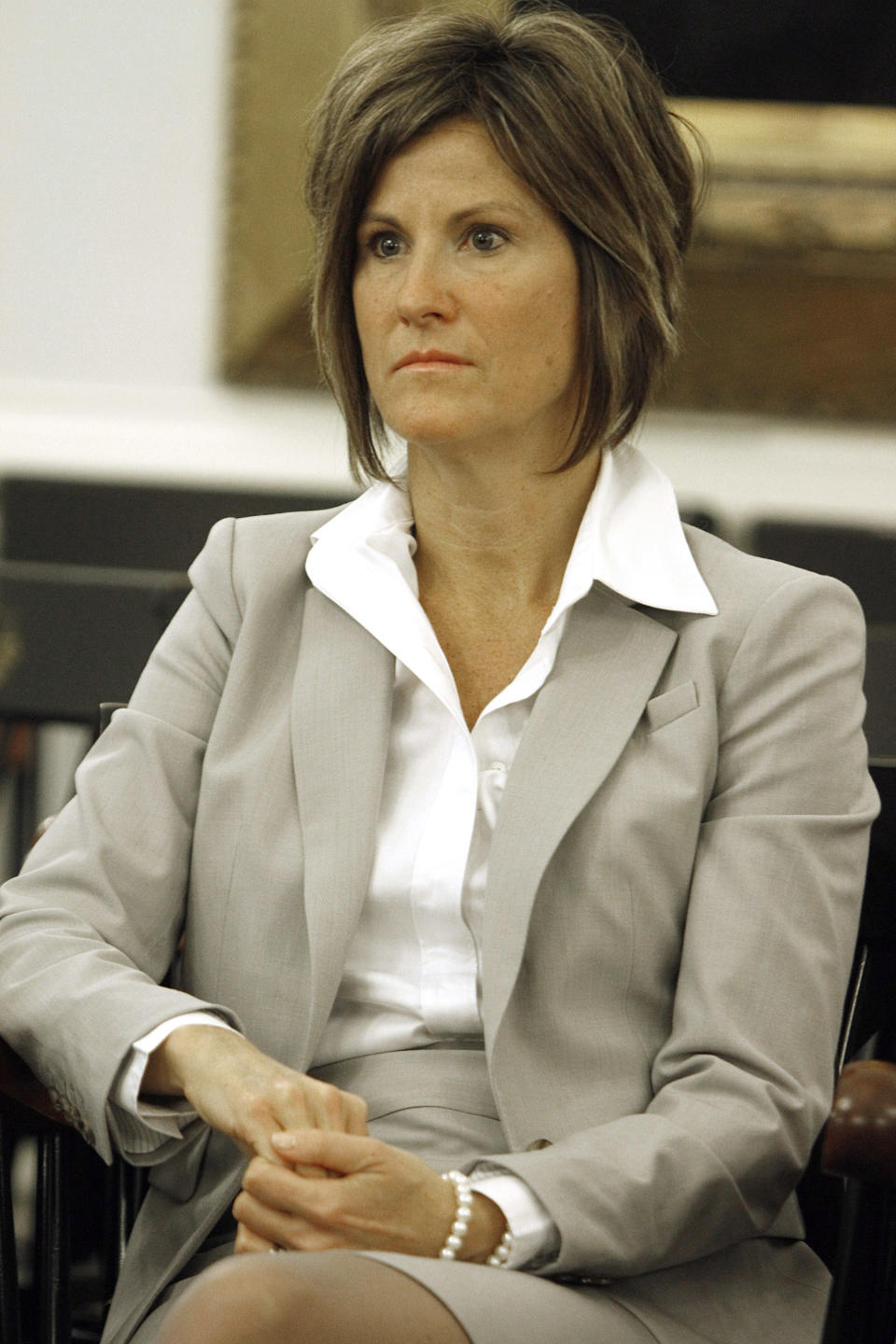Vt. utility execs defend merger plan to lawmakers
MONTPELIER, Vt. (AP) — Utility executives, other business leaders and a former top state regulator appeared before two Vermont House committees with the same message Tuesday: Don't interfere with regulators' review of a proposed merger of the state's two largest power companies.
"I think it is a very, very serious problem for you" if lawmakers try to tell the Public Service Board how to handle one or more aspects of the merger, said V. Louise McCarren, former chairwoman of the board and commissioner of the Department of Public Service. "The first thing that's going to happen is you're going to undercut the authority of the board."
Lawmakers continued the drumbeat of criticism, however, releasing a list of payouts due to current and recently departed executives and board members of Central Vermont Public Service Corp. when it is acquired by Montreal-based Gaz Metro and merged with Green Mountain Power Corp. The list showed more than $24 million in payouts, with more than $8.3 million of that in stock accumulated by former CEO Robert Young.
The Public Service Board is in the final stages of reviewing and is expected to rule by June on the planned marriage of Colchester-based GMP and Rutland-based CVPS. The $472.4 million deal would give the combined company control of about 80 percent of Vermont's retail power market.
The companies have touted a promised $144 million in savings to ratepayers over 10 years from efficiencies generated by combining them. The Department of Public Service, which answers to the governor and represents ratepayers before the board, has pointed to what its commissioner, Elizabeth Miller, said are improvements for the public that the department has negotiated since the deal was announced.
Miller on Tuesday pointed to an agreement that there would be greater public control over the Vermont Electric Power Company, known as VELCO, which manages the state's high-tension power transmission backbone. The two merging utilities currently are the largest owners of VELCO, and critics of the merger had said they were worried about the state's transmission grid coming under the control of a Canadian company. Under an agreement struck between Miller's department and the utilities, public representatives on the VELCO board will go from three to eight of the 13 seats.
Miller also said she and her staff got the companies to agree to move much more of the $144 million in projected savings to earlier in the 10-year period after the merger so that the savings are realized.
But a key sticking point for many lawmakers — and for the consumer group AARP — has been $21 million that CVPS ratepayers have coming to them for paying extra on their bills a decade ago to bail the company out of financial trouble.
The companies have proposed spending the money on efficiency measures in the CVPS service territory, including weatherizing customers' homes to help them save money on heat. AARP has been running television ads demanding that the money be repaid to ratepayers either as a lump-sum check or reductions in monthly bills. AARP also objects that the utilities' plan calls for the combined company to be able, after putting up the $21 million for efficiency improvements, to collect it back again from ratepayers.
Philene Taormina, director of advocacy for AARP, complained Tuesday that after the merger, the efficiency improvements would go only to former CVPS customers, while the rate increases to pay for them would be paid not just by them, but also by customers who had GMP before the merger. "And that is just not fair," she said.
Some lawmakers are siding with AARP, and are calling for legislation requiring the board to order the companies to repay the $21 million in cash and not recoup it from ratepayers.
But GMP CEO Mary Powell, CVPS Chairman Larry Reilly and other business leaders including Janet Doyle of IBM in Essex and Jim Pratt of the Cabot Cooperative Creamery all urged the Legislature not to intervene in a case open before the Public Service Board.
For lawmakers to inject themselves into a regulatory process would set a bad precedent and likely "would be detrimental to our business in the future," Pratt said. Cabot might come out ahead in this instance if legislative action lowered its electric bills, Pratt acknowledged. But, he said, "we could just as easily be on the losing side."

